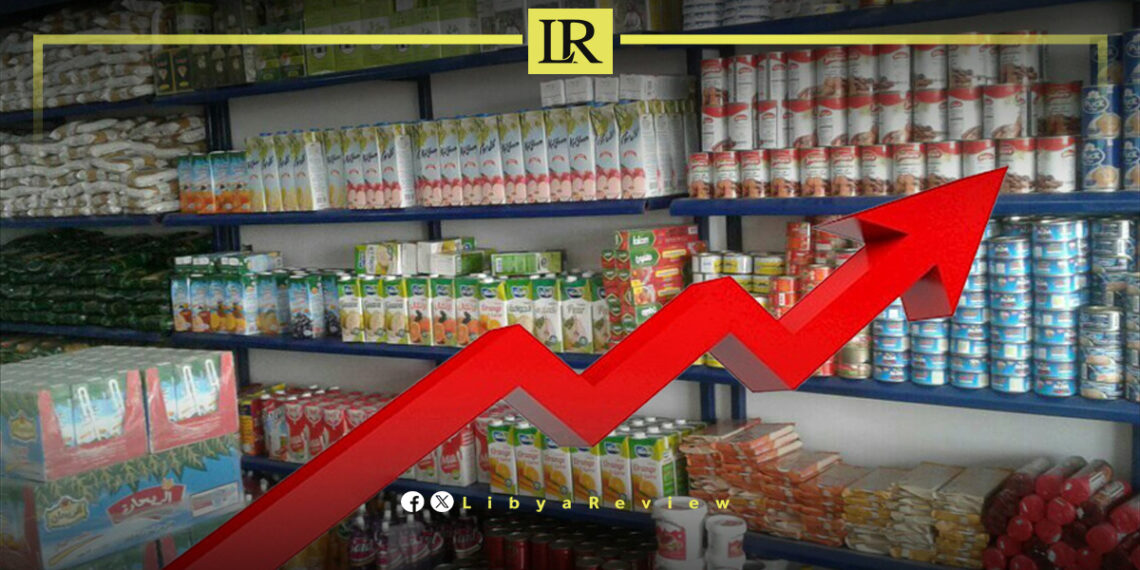On Tuesday, Radio France Internationale (RFI) sounded the alarm over the escalating crisis at Libya’s Central Bank, warning that it could soon lead to a suspension of vital imports, including medicine and food.
In its report, the French Agency said that the financial instability stems from a dramatic decline in the Libyan dinar’s value on the black market, a situation directly tied to the unresolved conflict over control of the Central Bank.
The devaluation of the Libyan dinar has contributed to skyrocketing prices across the country, with food costs increasing by a staggering 27.8% in just one month. Data from the United Nations Food and Agriculture Organization (FAO) highlights the growing food crisis in Libya, which is being exacerbated by the Central Bank’s inability to manage the country’s exchange rate and control the black market for U.S. dollars.
According to the report, the economic downturn is further aggravated by declining oil exports, which have reduced Libya’s foreign currency reserves. Oil revenues are Libya’s primary source of income, and the country’s diminished ability to export oil is compounding the currency crisis, leaving the Central Bank struggling to stabilize the economy.
Experts cited in the RFI report warn that the medium-term consequences could be dire. Libya may soon face significant difficulties in importing essential goods, particularly medicines and food. The situation is made worse by the ongoing control of the Central Bank’s SWIFT code by Governor Al Siddik Al-Kabir, which manages international financial transactions. If this control is not effectively utilized, Libya’s access to critical imports could be severely jeopardized.
The crisis within the Central Bank reflects the broader political and financial chaos that has plagued Libya since the 2011 fall of Muammar Gaddafi. For years, Libya has been divided between rival factions in the east and west and the Central Bank has been split between two competing branches. This fragmentation has undermined efforts to impose a unified fiscal and monetary policy.
The lack of a unified strategy has allowed Libya’s black market to flourish, further devaluing the currency and making it increasingly difficult for citizens to afford basic goods. The failure to implement a consistent exchange rate has left the Central Bank powerless to curb the currency’s decline, leading to widespread economic hardship across the country.
The country’s economic troubles are also compounded by its dependency on oil exports, which have fluctuated due to both global market conditions and domestic production challenges. With oil revenues dwindling, Libya’s foreign currency reserves are shrinking, putting even more pressure on the Central Bank to meet the needs of importers.
Politically, the crisis has been exacerbated by the deadlock between Libya’s rival governments, with the Tripoli-based Government of National Unity (GNU) and the eastern House of Representatives unable to agree on key economic reforms.
The failure to appoint a new Central Bank governor or to unify the institution has deepened the financial crisis, with international observers increasingly concerned about the potential for a complete economic collapse.


